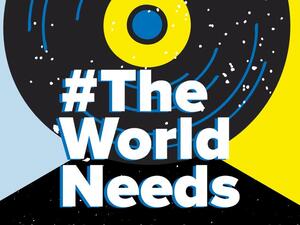Canadian-made refugee awareness campaign aims to shock
Canadian-made refugee awareness campaign aims to shock

One of the eye-catching and provocative adverts created for UNHCR by the Toronto office of BBDO.
OTTAWA, Canada, May 14 (UNHCR) - The UN refugee agency is running a provocative international advertising campaign that employs shock tactics to raise awareness about its work and drum up public support for refugees.
The pro bono TV campaign, launched in Canada on May 8 and also running in about a dozen countries in Europe, South America and Africa, was created by the Toronto office of the BBDO advertising agency. UNHCR Canada hopes it will help raise $2 million Canadian (US$1.8 million) for the agency this year.
The BBDO team aimed to show the plight of refugees in a context that people could relate to. But in order for UNHCR to stand out among all the charities jostling for attention and money, the impact of the message had to be strong and provocative.
Much edgier than the usual United Nations fare, one of the TV spots features a computer-generated snail being pulled from its shell with a pair of tweezers. The tag line reads: "If you think taking one snail from its home is disturbing, you should know it's already been done to 21 million people."
BBDO also produced print and radio advertisements dealing with the theme of home and using irony to get the message across. One of the ads features a photograph of three refugee women shielding themselves from a sandstorm with nothing but their clothes and a blanket. "Refugees are so lucky," screams out a headline.
"They have no idea how much it costs to renovate a house these days. Brazilian hardwood. Stainless steel appliances. Kitchen backsplash at $12.55 a square foot. Their home furnishings tend to be a little more basic. Tarp. Wood. Cardboard. Anything that can help protect from the harshness of the elements. And give them a fighting chance at survival," adds the sub-head.
Three radio spots are about mock eviction notices posted on homes situated on fictitious streets in Toronto. "Please be advised your families have been evicted, beaten and are running eastbound on Circle Drive to save their lives," says one.
Jonathan Wade, UNHCR's fund-raising officer in Ottawa, said BBDO's Associate Creative Director Peter Scissons was the mastermind behind the campaign. "He called me and made an offer I couldn't refuse," recalled Wade. "He basically said: 'Look, you guys are doing great work, but no one really knows much about refugees and I would like to offer my expertise to help you drum up public support for them.'"
Wade said it was agreed from the start that the campaign would be designed to attract the attention of urban professionals. "These are the elusive 30 to 45-year-old professionals who are generally well educated, well read, but have not had direct experience or knowledge of refugee issues."
According to Scissons, "One of the main challenges with doing refugee awareness is that people don't really understand what it means to be a refugee and so its hard for them to have that empathy."
The advertisements have generally gone down very well. The UNHCR office in Ottawa has received calls from print and broadcast media asking to run the ads, which picked up five awards at the annual Canadian Marketing Awards in March, before the formal launch of the campaign. Only a few people have urged UNHCR to pull the adverts.
And the campaign is costing the refugee agency almost nothing. Scissons said a typical campaign of this nature would cost up to $250,000 Canadian. But UNHCR was only billed $4,400 Canadian to cover the cost of making copies of videos for distribution to more than 120 TV stations in Canada and abroad.
"We are very gratified that BBDO has offered to leverage the power of advertisement to help refugees, said Jahanshah Assadi, UNHCR representative in Canada. "But in the end it comes down to one committed individual to galvanize the talents and expertise of his peers to realize a project of this scale," he added referring to Scissons.
By Nanda Na Champassak in Ottawa, Canada









